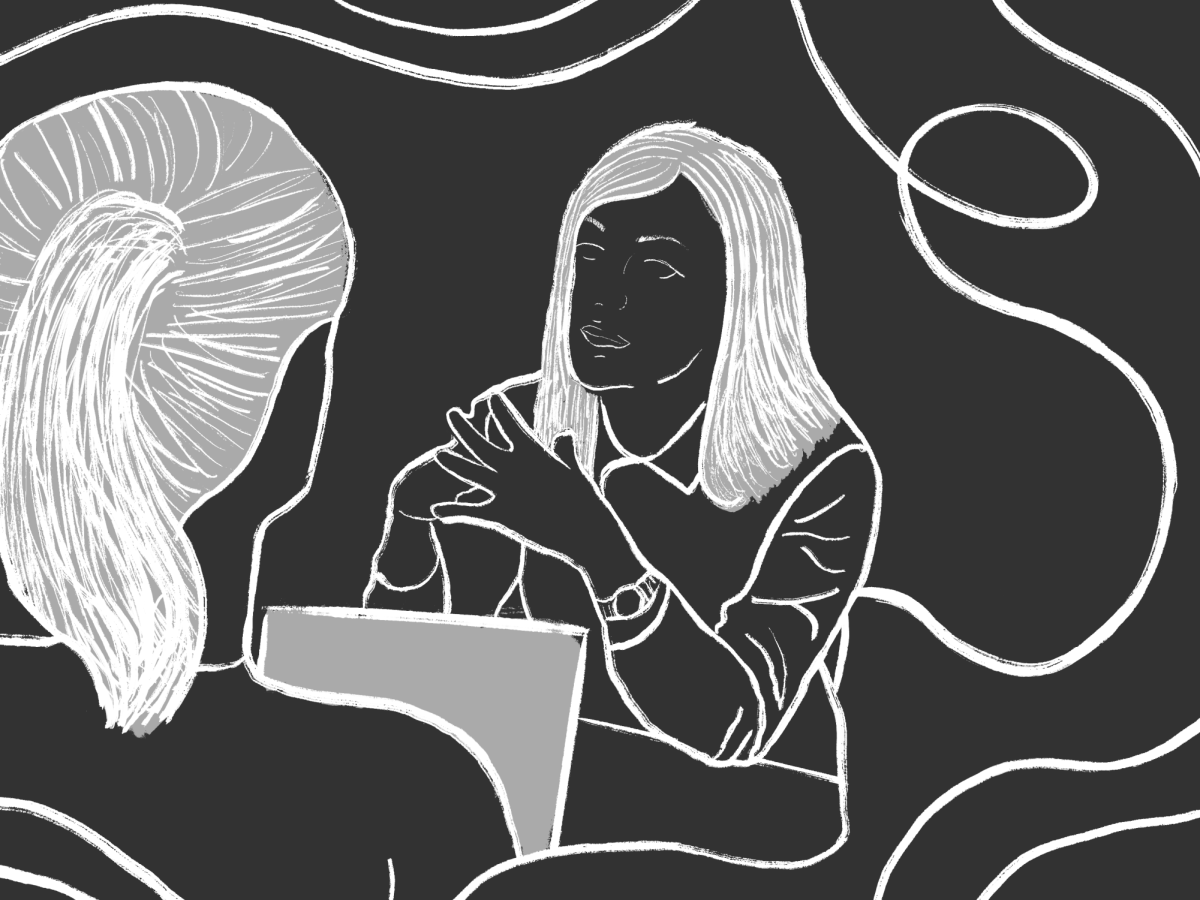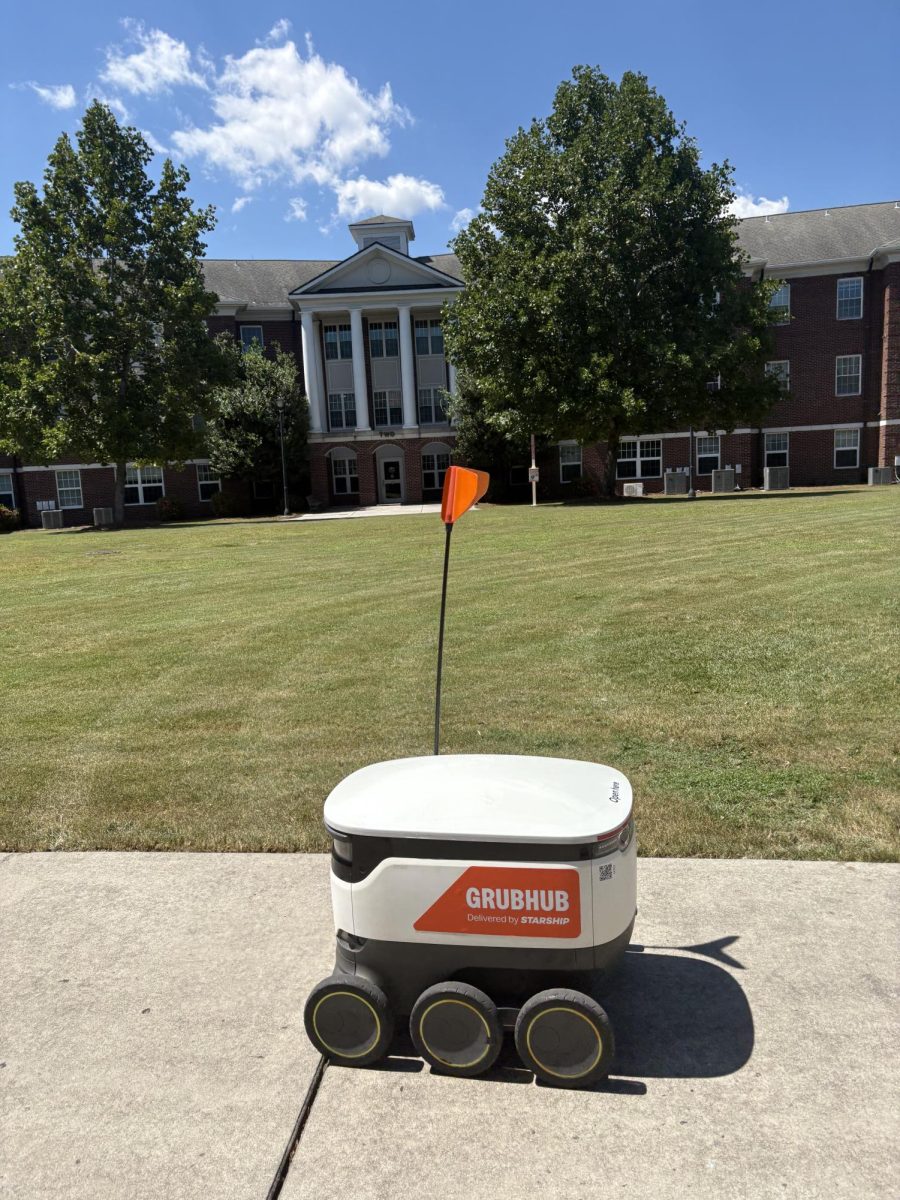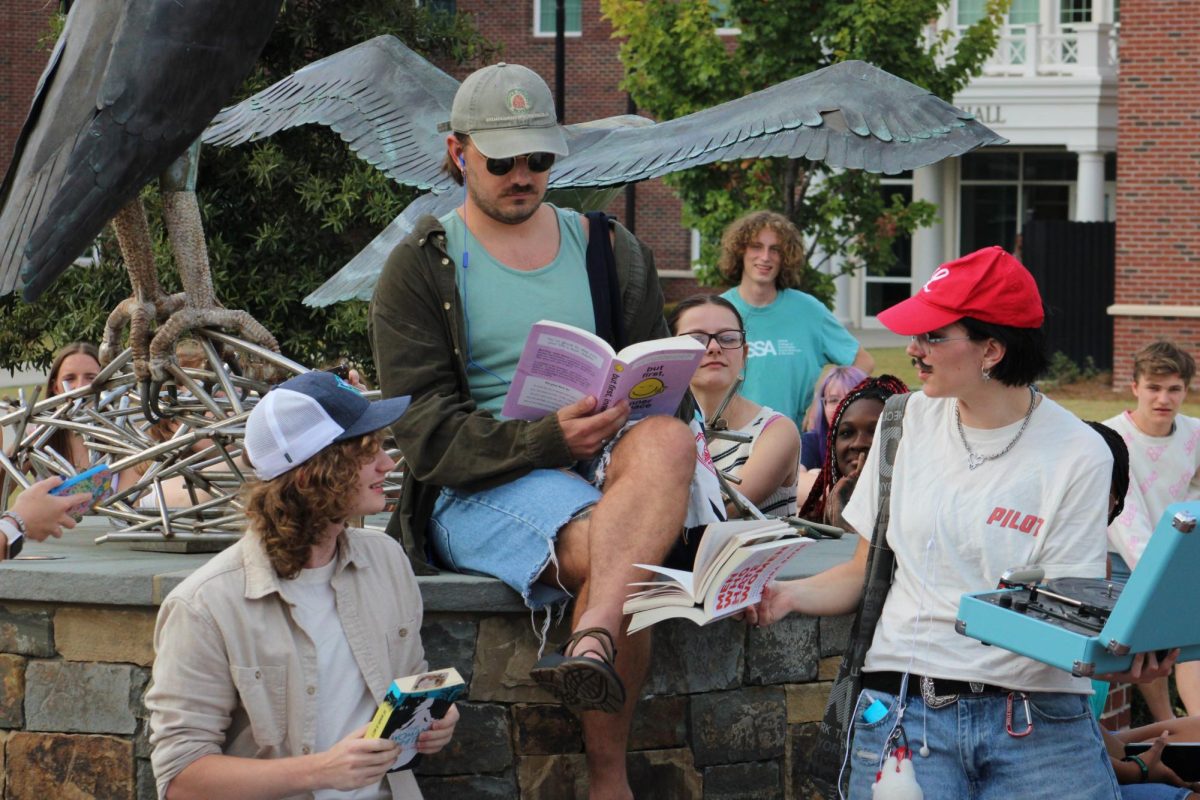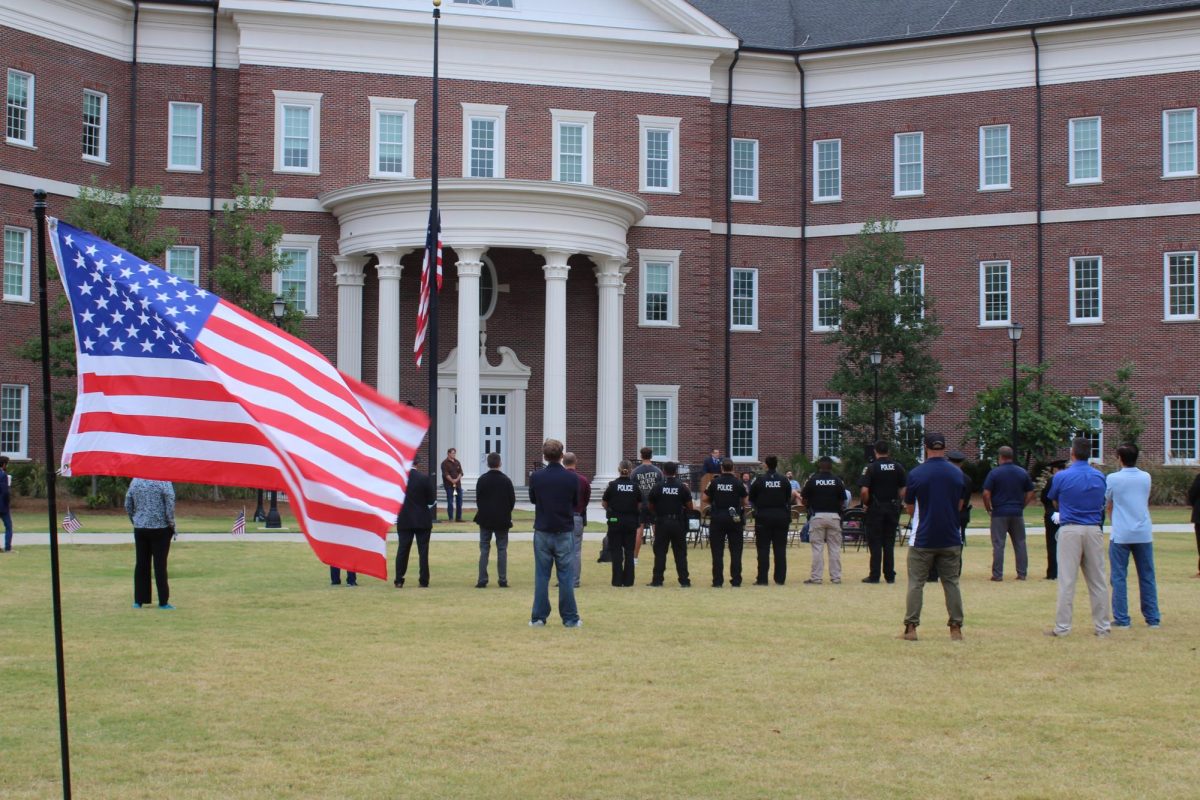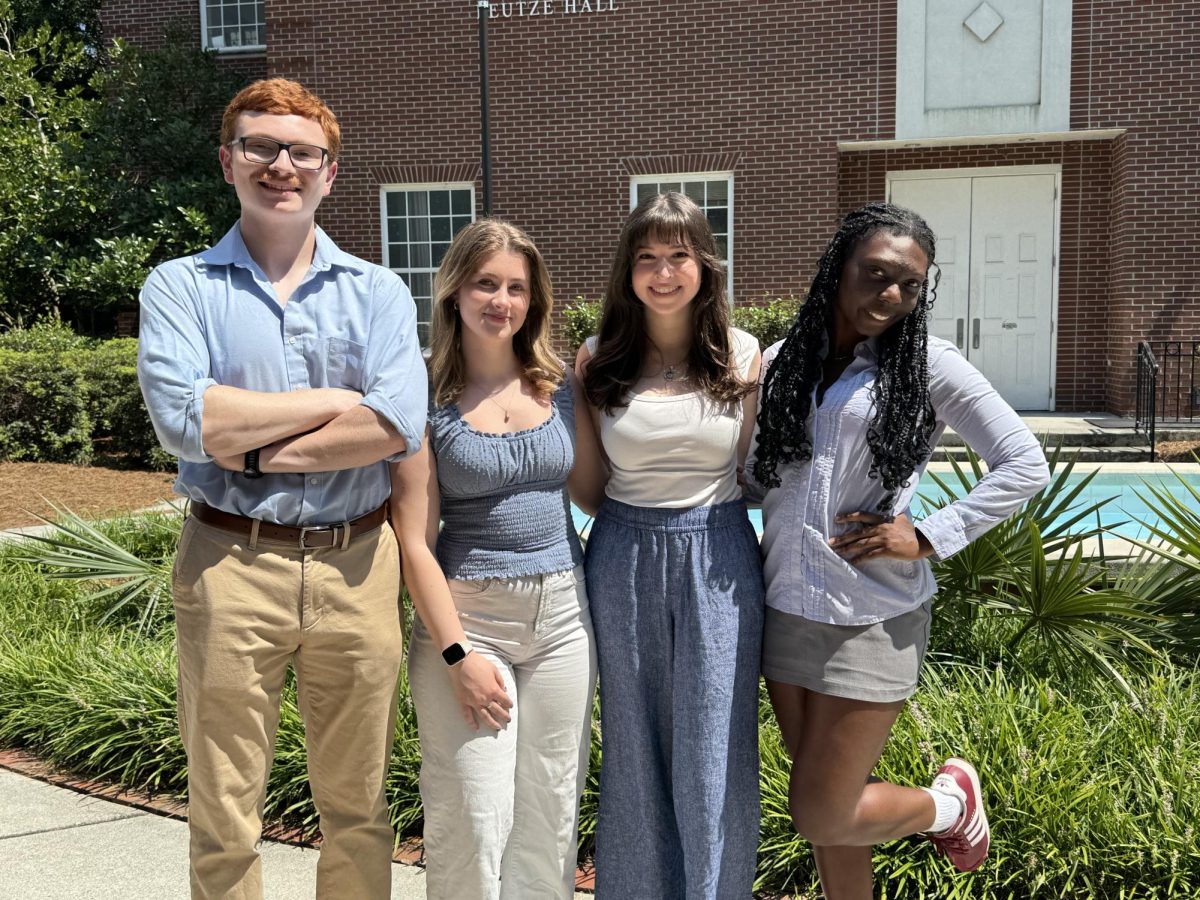
UNCW offers students the opportunity to study abroad and foster an enriching experience by being immersed in a culture different than their own and with different customs, languages and food. Each student will have a different takeaway, and understanding the advice they share is key when it comes to evaluating one’s own decision to go abroad.
Elizabeth Montgomery is a senior majoring in theater performance and minoring in dance. She studied abroad during the spring semester of 2023 in Sidcup, England, a city just outside of London. Montgomery attended Rose Bruford College which focuses on the performing arts. UNCW does not have many theater performance majors, and it was exciting for her to be surrounded by people who share a similar passion. Montgomery described having small classes with the same people and the deep connections she found as a result.
Rose Bruford College has an exchange program with UNCW, allowing Montgomery to create relationships with students from England. The semester before she went abroad, four students came to UNCW from Rose Bruford College and provided a support system for Montgomery when she came to their school. Her friends helped her find housing and navigate life in a foreign country.
Montgomery remembers the first time she travelled into the city with her friends as her “tourist day” because it was her first time seeing Big Ben.
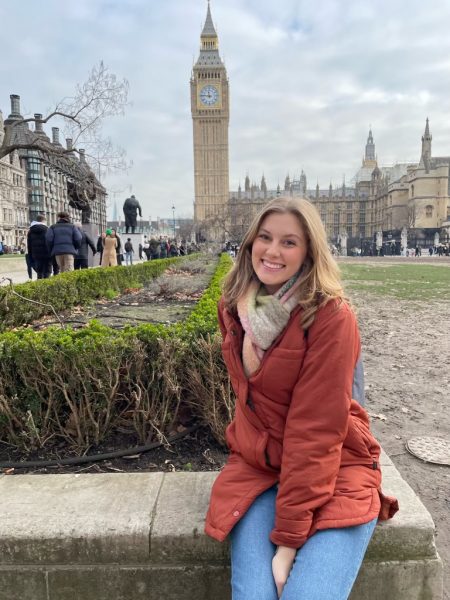
“Seeing this huge landmark that London is known for and knowing that I get to see this every day for four months is just so wild,” said Montgomery. “I think in that moment it really clicked that I was there, and I was so taken aback and in awe of the situation I was in.”
Montgomery learned the value of taking time for herself and making sure she was rested. There were many activities and places she wanted to be part of, however she realized she had to find time to relax. Montgomery’s time in England helped her realize that she was capable of more than she anticipated and now she enjoys being self-sufficient and exploring new places on her own.
“It definitely taught me that I can be independent. I think I struggled with that before I left,” she said. “I felt like I always needed to be surrounded by people, and although I still feel that on a certain level, I learned that I’m able to do things that I didn’t think I could do. Like I went to a few different countries all by myself, and that was really scary, but I did it.”
While she was worried about missing certain aspects of home, she knew that her family, friends and the beach would still be at home when she got back. Her time abroad gave her a new appreciation for what she loves about UNCW.
“These people and these places mean a lot to me, and being away from them just made that matter even more,” Montgomery said. “Not a bone in my body regrets coming [to Rose Bruford].”
Montgomery had an unforgettable experience during her time at Rose Bruford College and has memories that will last a lifetime. The circumstances of her trip allowed her to come away with this positive impression of studying abroad.
Not every student can say the same about their own experience. A variety of factors play a role in a student’s experience abroad such as the weather, political climate, housing and support. These factors are not always controllable and can make a difference in a student’s experience. In the spring semester of 2023, Olivia Vizethann studied abroad in Stirling, Scotland at the University of Stirling. Vizethann is a senior majoring in creative writing and minoring in oceanography.

Similar to Montgomery, she chose to study abroad because she wanted to take advantage of the opportunity offered by UNCW. “I wanted to take all I could out of college, and that’s one of those things you can take advantage of,” said Vizethann.
Vizethann encountered obstacles that she had not prepared for. “It’s not that I can’t weather the storm, it’s that I didn’t even think to bring my umbrella,” she described.

A cultural difference that took Vizethann by surprise was the usage of illegal substances, the most common being cocaine. She described having to wipe cocaine off the kitchen table to make breakfast even though she herself did not partake.
Classes were structured differently than what she was used to. “You only have class once a week per class and you only take three classes. You really only have class maybe two days a week if two of your classes are on the same day,” she said. “There’s a myriad of strikes happening in Scotland so there was no class.”
The strikes in Scotland concern the pay and treatment of non-teaching staff in universities and grade schools. The strikes began four days after the start of classes. Vitzethann’s study abroad advisor did not warn her about the political climate of Scotland even though there had been strikes occurring before she submitted her application.
The strikes weakened the spirit of the student body, and Vizethann found it challenging to build relationships with peers.
“I really tried joining a lot of clubs,” she said. “I tried joining the scuba club, the polo team which ended up working out decently but again, the strike affected the energy of the student body. Kids were pretty demoralized. It was kind of like COVID all over again.”
Vizethann felt that she had no support. She made the effort to be involved and experience a new culture, but she received no benefit. There were many instances where she would show up to a club meeting to find out that no one else showed up. The meeting was never cancelled, students simply lacked the motivation to participate.
The most apparent difference between Montgomery’s and Vizethann’s experience is the amount of support they received. Montgomery had the support of her friends at Rose Bruford College that she built relationships with before going abroad. They helped her find a place to stay and showed her around the city. Her classes were with the same students, allowing her to create close bonds throughout her time there.
“No one ever tells you when you get over there that it’s going to be hard,” she said. “You’re going to miss your family and you’re not going to just be able to go home. No one ever really talks about the ugly side of it.”
She described feeling pressure to have an amazing experience abroad during the strikes. “They just expect it to be fun the second you hit the ground,” Vizethann said. “As soon as I landed they’re like ‘are you having the greatest time ever yet?’ and I’m like ‘no, I’m pretty sure my flatmate is a crackhead.’”
Although Vizethann had an unremarkable time abroad, she does not regret it. “As much as I really resented it, I don’t regret it because it was something I always wanted to do.” It taught her not to take small things for granted, like going to a coffee shop. There were many occurrences where no cafes were open because employees were striking.
Montgomery and Vizethann agree that studying abroad is an amazing opportunity to experience a culture different from one’s own. Some may consider this as the best months of their lives, but this is not the reality for everyone. It should not be expected that every student has a life-changing adventure, because feelings of disappointment and resentment will result if it is not. The conversations surrounding these experiences should be accepting of different opinions and perspectives. Students should understand that if their time abroad is not the best months of their life, that is normal. Feeling disappointed is part of being human. By taking away the pressure of having the time of their lives, students can approach studying abroad with flexibility and humility.



